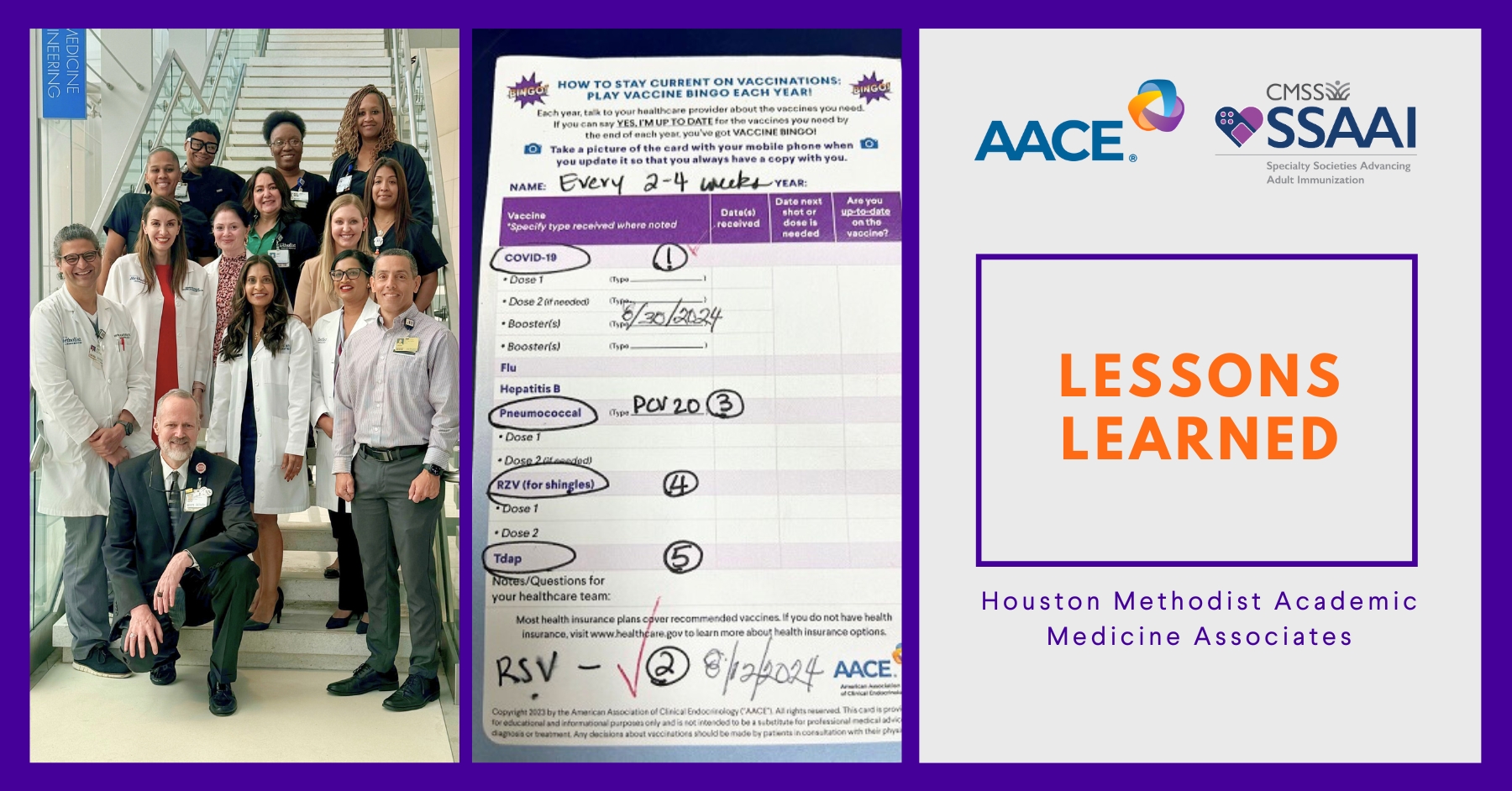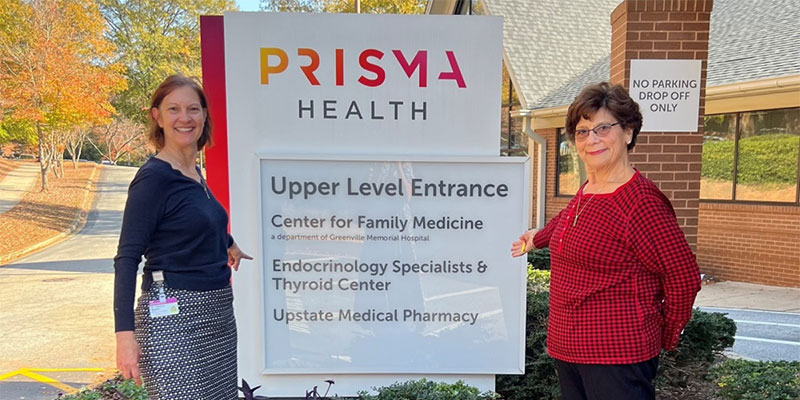This is Your Shot: Be a Vaccine Champion to your Patients with Diabetes!
Learn about AACE's 4-year Effort to Improve Vaccine Coverage for Adults with Diabetes.
AACE supports the recommendations of the CDC Advisory Committee on Immunization Practices (ACIP) that all persons with diabetes mellitus receive age-appropriate vaccinations according to the CDC/ACIP schedule. AACE also recommends endocrinologists learn about and implement the CDC’s Standards for Adult Immunization Practice, which describes a four-step process to improve vaccination rates.
AACE is part of a consortium of medical specialty societies funded through CDC and supported by CMSS to provide vaccination resources to healthcare providers who treat adults with diabetes, including practice tools, resources, learning opportunities, clinical practice guidance, and quality improvement initiatives.
Using the CDC’s Standards and AACE’s Vaccine Tools, endocrinologists can be vaccine champions to patients with diabetes.
TIPS IN CHRONIC DISEASE MANAGEMENT
- Patient Vaccine Bingo Card - English Version, updated 10/2024
- Patient Vaccine Bingo Card - Spanish Version, updated 10/2024
- Patient Vaccine Bingo Card - Arabic Version, updated 10/2024
- Patient Vaccine Bingo Card - Chinese Version, updated 10/2024
- Patient Vaccine Bingo Card - Farsi Version, updated 10/2024
- Patient Vaccine Bingo Card - French Version, updated 10/2024
- Patient Vaccine Bingo Card - Portuguese Version, updated 10/2024
- Patient Vaccine Bingo Card - Russian Version, updated 10/2024
- Patient Vaccine Bingo Card - Vietnamese Version, updated 10/2024
- Recommended Vaccines for Patients Poster, updated 10/2024
AACE Advancing Immunizations
Learn about AACE recommended vaccines and the CDC’s Standards for Adult Immunization Practice
Endocrine experts Ricardo Correa, MD, FACP, FACMQ, FAPCR, FACE; Rajesh Garg, MD, PhD; and Geetha Gopalakrishnan, MD, FACE, as they share valuable tips and success stories on how to talk to patients with diabetes about the importance of vaccinations in diabetes management. (NEW: 10/2023)
Learn about AACE's 4-year Effort to Improve Vaccine Coverage for Adults with Diabetes.
Listen to AACE endocrine leader, Dr. Ricardo Correa, and coding expert Cindy Hughes share immunization coding rules, tips, and cases to help health care professionals make changes in their coding practices. Please keep in mind that vaccine administration codes can change annually and have changed for 2024. Please see AACE’s 2024 Updated Coding Toolkit and Resources.
AACE Advancing Immunizations: Billing and Coding for Vaccination-Related Services for Patients with Diabetes
Additional Resources
- Read the Call to Action to Protect All Adults from Vaccine-Preventable Disease and Disability from the National Adult and Influenza Immunization Summit. AACE supports this call to action.
- View the Adult Immunizations Schedule on the CDC website.
- View COVID-19 vaccination information from:
Quality Improvement Projects
As part of the AACE Advancing Immunizations Project, we are partnering with several health systems to conduct a series of Quality Improvement Projects designed to improve routine immunization assessment; provider vaccine recommendations, immunization services, patient care procedures, and immunization documentation.
AACE's Health System Partners are:- Brown Medicine and Lifespan Corporation
- Cleveland Clinic -Health Equity and Initiatives Institutes EMI
- Houston Methodist
- Lundquist Institute for Biomedical Innovation at Harbor-UCLA Medical Center
- Prisma Health Center Endocrinology Specialists and Thyroid Center
- University of California, Los Angeles Gonda (Goldschmied) Diabetes Center
- University of Nevada, Las Vegas Health
The National Vaccine Advisory Committee (NVAC) revised the Standards for Adult Immunization Practice in 2013. View the most recent Standards for Adult Immunization Practice on the CDC website. These updated standards call on ALL healthcare professionals — whether they provide vaccinations or not — to take steps to help ensure that their adult patients are fully immunized. These steps are as follows:
ASSESS immunization status of all your patients at every clinical encounter.
Strongly RECOMMEND vaccines that patients need.
ADMINISTER your patients to a vaccination provider.
REFER your patients to a vaccination provider.
DOCUMENT vaccines received by your patients.















